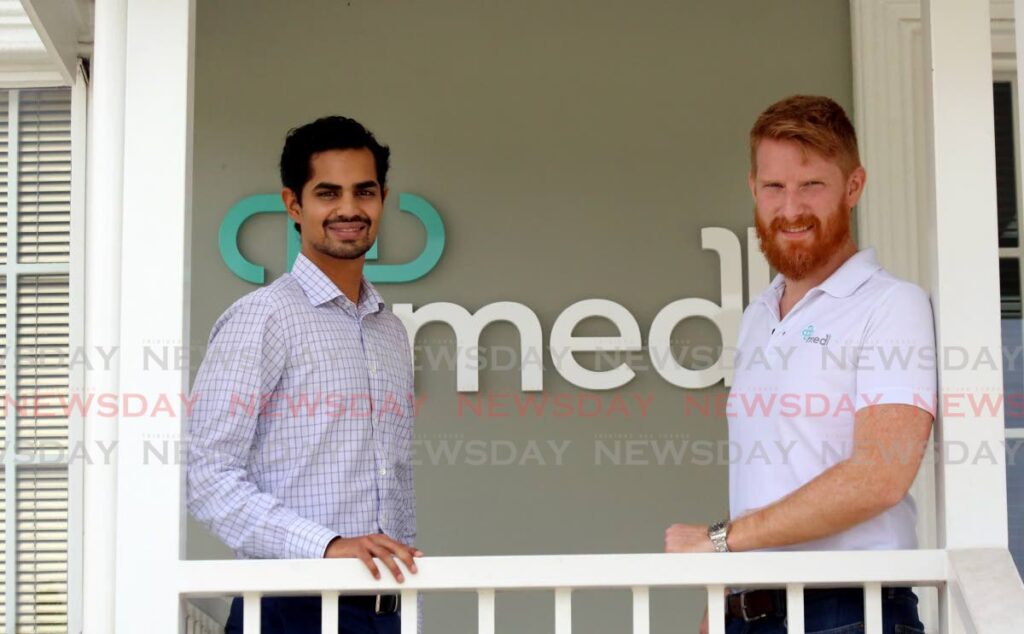Channel the mundane to change the world

Most advice on innovation is apt to come across as vague verging on trite. At its heart, innovation is simple- just solving problems. Yet so many people still don’t follow this basic premise. How many times have we seen people come up with fun ideas (“oh I have this great app!” Blockchain woo!”) without identifying a problem?
When people first hear about medl, the company Edward Inglefield and I started three years ago, it is usually through hearing about the solution: medl’s platform connects doctors and patients with insurers our pharmacy to deliver medication to your door.
But for us – the solution came after identifying the problem. We started medl because we believe that no one needs to die from diseases we know how to control. Right now, one in two people die from heart disease and diabetes alone, more than half of whom are under 70.
For my co-founder and I, the journey began with sitting down for a drink and expressing our frustration over how difficult it was seeing our eighty and ninety-something year old grandparents struggle to manage their medication. Cursory online research quickly revealed a problem global in scale. Even now, one in two prescriptions globally are never filled. Millions more like our grandparents and the people that care for them fight with hours of traffic, mounting medication bills and the effort of navigating confusing jumbles of pills.
We realised we had to solve each of these pain points. Through the platform we’ve built, doctors can prescribe to patients, who order their prescription on the medl app, which is then delivered from our in-house pharmacy. Delivery is free. The patient only pays for their medication.
This way, we improve access, save time, lower costs and simplify medication. This increases medication compliance and ultimately saves lives.
Edward puts it this way: “Often innovation starts with a sense of disappointment at small interactions. We can solve the problems by identifying the source of that disappointment and fixing it.”
The reason being obsessed with the problem is more important that your solution is because no matter how well planned your solution is, the moment you put it in the hands of users, they will find a way to break it. We found that out the hard way – the first version of our product didn’t connect to insurance companies to allow patients instant automatic insurance claims – something that we realised would be critical to help people manage thousands in medication costs. We had to go back to the drawing board to get it right. Innovation is listening.
Then, your customers actually build your product for you! But how do you get it off the ground? Thousands have ideas, and few actually build a thing.
At this point, it’s always striking that when people ask us for advice, they always want to talk about how to raise money. Yes, there is plenty to be said around that, and the Inter-American Development Bank Lab and the EU are doing a huge amount with their new US$9 million fund through the Caribbean Industrial Research Institute. But when founders go to them or any other potential team member, investor or customer – it comes down to one simple thing: tell the story.
In an interview with founder Elad Gil, Sam Altman, founder of Y-Combinator, the world’s most successful tech accelerator, says: “The hard part is that most people want to just do the first part, which is figure out what the company should do. In practice, time-wise, I think the job is five per cent that and 95 per cent making sure that it happens. And the annoying thing to many CEOs is that the way you make it happen is incredibly repetitive. It’s a lot of the same conversation again and again with employees or press or customers. You just have to relentlessly say, “This is what we’re doing, this is why, and this is how we’re going to do it.” And that part—the communication and the evangelising of the company vision and goals—is time-wise by far the biggest part of the job.”
Once you can do that enough times, to the right people, investment almost becomes inevitable, especially once you firstly identify people’s motivations and tailor your story around their incentives, and secondly, find the right champions. In our case our fairy godmothers were Vashtie Dookiesingh and Irene Arias Hofman from the IDB. Not everyone will listen- but repeat yourself enough then an interested ear will present itself. Sometime, by channeling the seemingly mundane, we can change the world.
Kiran Mathur Mohammed is an economist and co-founder of medl, an IDB Lab and Microsoft-backed health tech company, winner of the 2021 Chamber of Industry and Commerce Technology Award. Mohammed can be reached at kmmpub@gmail.com.

Comments
"Channel the mundane to change the world"